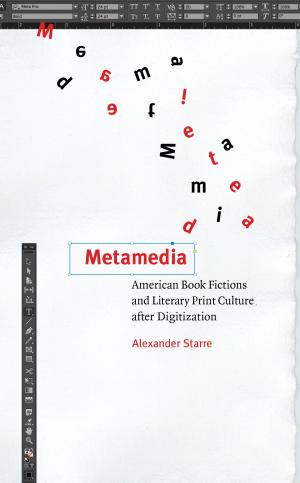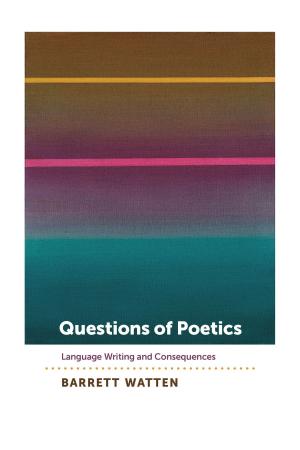Reading Project
A Collaborative Analysis of William Poundstone's Project for Tachistoscope {Bottomless Pit}
Fiction & Literature, Literary Theory & Criticism, Theory| Author: | Jessica Pressman, Mark C. Marino, Jeremy Douglass | ISBN: | 9781609383466 |
| Publisher: | University of Iowa Press | Publication: | May 1, 2015 |
| Imprint: | University Of Iowa Press | Language: | English |
| Author: | Jessica Pressman, Mark C. Marino, Jeremy Douglass |
| ISBN: | 9781609383466 |
| Publisher: | University of Iowa Press |
| Publication: | May 1, 2015 |
| Imprint: | University Of Iowa Press |
| Language: | English |
Electronic literature is a rapidly growing area of creative production and scholarly interest. It is inherently multimedial and multimodal, and thus demands multiple critical methods of interpretation. Reading Project: A Collaborative Analysis of William Poundstone’s Project for Tachistoscope {Bottomless Pit} is a collaboration between three scholars combining different interpretive methods of digital literature and poetics in order to think through how critical reading is changing—and, indeed, must change—to keep up with the emergence of digital poetics and practices. It weaves together radically different methodological approaches—close reading of onscreen textual and visual aesthetics, Critical Code Studies, and cultural analytics (big data)—into a collaborative interpretation of a single work of digital literature.
Project for the Tachistoscope {Bottomless Pit} is a work of electronic literature that presents a high-speed, one-word-at-a-time animation synchronized to visual and aural effects. It tells the tale of a mysterious pit and its impact on the surrounding community. Programmed in Flash and published online, its fast-flashing aesthetic of information overload bombards the reader with images, text, and sound in ways that challenge the ability to read carefully, closely, and analytically in traditional ways. The work’s multiple layers of poetics and programming can be most effectively read and analyzed through collaborative efforts at computational criticism such as is modeled in this book. The result is a unique and trailblazing book that presents the authors’ collaborative efforts and interpretations as a case study for performing digital humanities literary criticism of born-digital poetics.
Electronic literature is a rapidly growing area of creative production and scholarly interest. It is inherently multimedial and multimodal, and thus demands multiple critical methods of interpretation. Reading Project: A Collaborative Analysis of William Poundstone’s Project for Tachistoscope {Bottomless Pit} is a collaboration between three scholars combining different interpretive methods of digital literature and poetics in order to think through how critical reading is changing—and, indeed, must change—to keep up with the emergence of digital poetics and practices. It weaves together radically different methodological approaches—close reading of onscreen textual and visual aesthetics, Critical Code Studies, and cultural analytics (big data)—into a collaborative interpretation of a single work of digital literature.
Project for the Tachistoscope {Bottomless Pit} is a work of electronic literature that presents a high-speed, one-word-at-a-time animation synchronized to visual and aural effects. It tells the tale of a mysterious pit and its impact on the surrounding community. Programmed in Flash and published online, its fast-flashing aesthetic of information overload bombards the reader with images, text, and sound in ways that challenge the ability to read carefully, closely, and analytically in traditional ways. The work’s multiple layers of poetics and programming can be most effectively read and analyzed through collaborative efforts at computational criticism such as is modeled in this book. The result is a unique and trailblazing book that presents the authors’ collaborative efforts and interpretations as a case study for performing digital humanities literary criticism of born-digital poetics.















